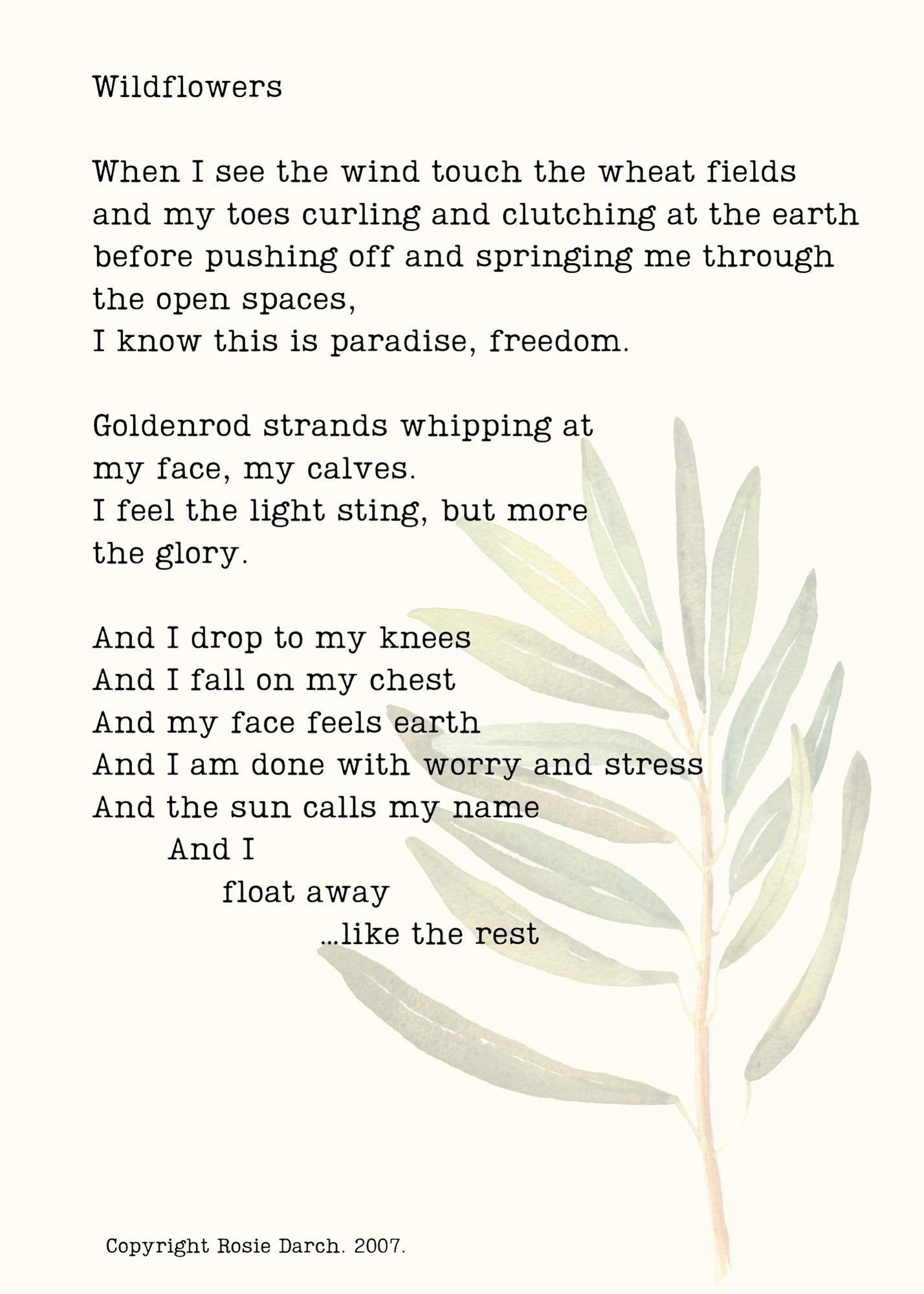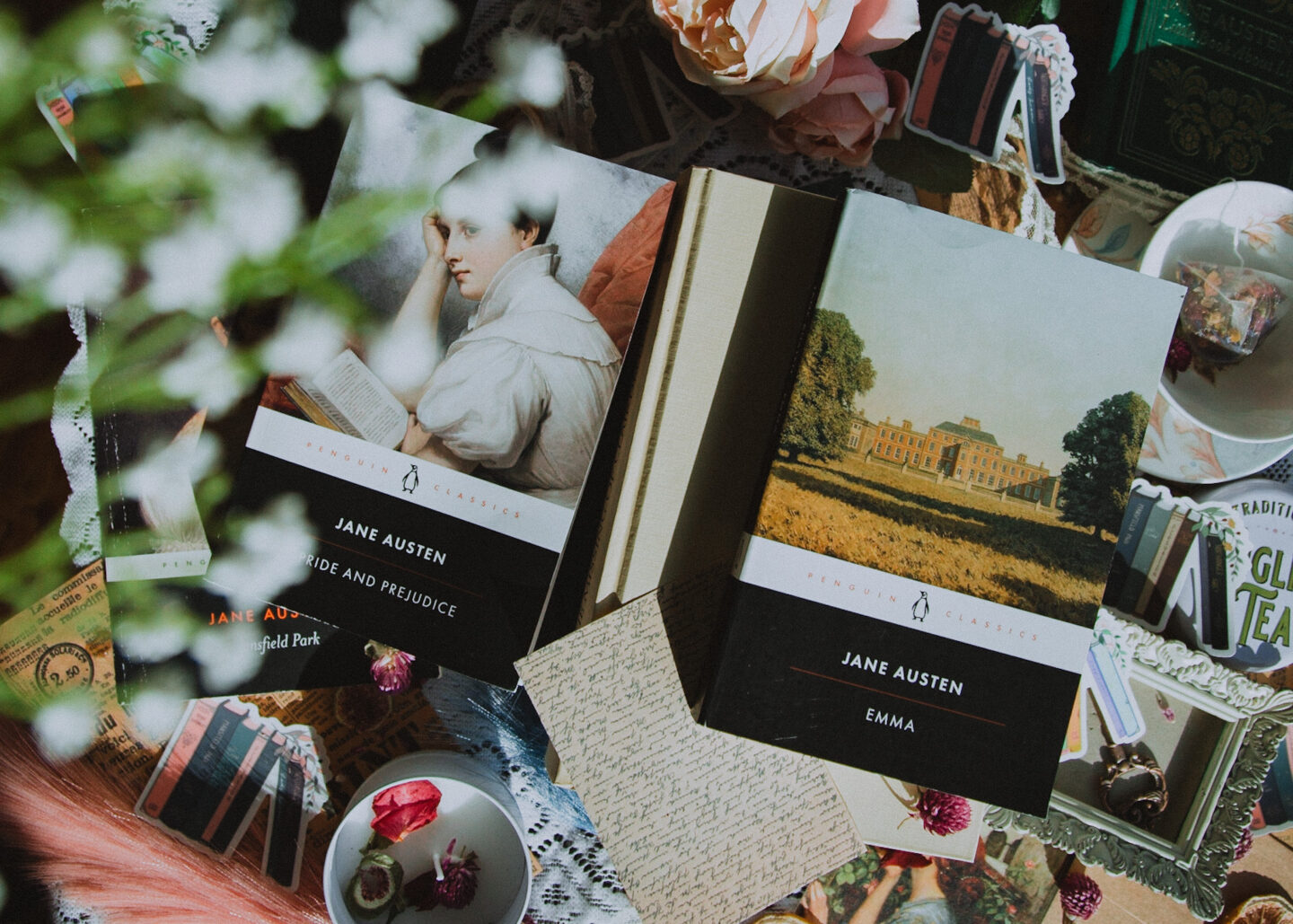
When I first wrote this, it was read aloud to my class (anonymously) by the teacher (a grad student) somewhere around 2008 I think. When she finished, I remember several students sighing in awe and saying things along the lines of “Wow” or “That was so good.” Nothing crazy, but they seemed to like it. And I was SHOCKED, but relieved and pleased to hear a positive response from some people. I didn’t expect any response, much less a seemingly positive one––and it was probably from about 6 or 7 people in a class of 20. So I felt that 6 or 7 people enjoying it was a great percentage. And the teacher said “Right? Sounds lovely,” so again I was relieved. Till she continued, “…but if you listen, does it actually say anything at all?” She went on line by line stating how they didn’t really say anything or mean anything at all, they just “sounded nice” but had no other purpose and told no story. And for a brief moment, I believed her. I believed I hadn’t expressed my intended meaning whatsoever. Not even a little bit. And that no one deserved to get anything out of my piece or feel anything after reading it. Yes, the piece leaned more toward the expression of a feeling than a direct explanation, but when I read it now, nearly 15 years later, it’s not that I think it’s anything great, it’s certainly not Shakespeare, in fact, I don’t even really like it anymore, simply because it’s 15+ years old and people change, but I do think ‘Damn, that TA had no fucking idea, did she?’ And I’m not even talking about the meaning of the piece (although that too), but did she have any idea about art in general? Maybe not. And let me explain.
As a general rule, I shouldn’t have to explain the piece. As a writer, you don’t get to explain every word you’ve written. You really don’t get to explain any word you’ve written. You don’t get to say “this means that” so the reader is not confused and knows every bit of backstory. If I did my job correctly, people should read the piece and get something from it—preferably my intended meaning. But as we all know, art is subjective. Always. So, if a reader got something—ANYTHING—out of my writing, anything at all, then I feel I did my job. If they hate it, that’s fine. At least it’s a feeling. If they say they didn’t get it, well that’s okay, too! Maybe it’s not meant for them? If they felt something they can’t describe, great! If they can explain every line in detail, EVEN IF it’s NOT what I intended, THAT is still wonderful, too. Because of that subjectivity.
I am all for working on one’s writing. Having it peer-reviewed and expert-reviewed. I majored in writing after all, so I’ve had my work picked apart in settings where I was literally not allowed to speak or defend or explain it in any way shape or form. The whole point was to see what others got out of your work and then adjust your writing to improve your own piece if it needed to be more abstract or required some clarification. Suggestions were given. Clarification requested, so on and so forth, from students and the professor alike. All valid notes in an educational setting. But that’s not what happened when the above piece was used as an example. It was reviewed, not constructively critiqued. Reviews are wonderful, but reviews are not for writers. Reviews are for readers. Again, reviews are wonderful, but in a class full of writers…in a class that was basically Creative Writing 101, it should absolutely have been an educational dissection…and it simply wasn’t. Hell, even a lesson in ‘what not to do’ would’ve been better than the uselessness of what we got. And I don’t mean to pick on this specific instructor, because maybe it was their first time TA-ing. But in general, I would like to hope teachers teach, and not degrade without reason.
My above piece may still need work, although at this stage I don’t really have any care to go back to it in that regard, I’m content with it being a clip of that past in regards to the actual writing; But I use it here as an example in this overarching discussion of art and education. It is good to want to improve one’s work and it’s good to learn from others how to do that so that you write or create art that says what you want it to say, at the very least. So that it tells whatever story you want in whatever way you’d like it to be told. Whether or not that’s what others get from it is entirely up to them…and a brutal truth all artists have to come to terms with. We cannot demand people interpret art in a singular way. Confusion or understanding? Well, both are valid interpretations of art.
So, to go back to my earlier statement: I shouldn’t have to explain the piece. In fact, almost no writer ever gets to!
But I do think very, very few works of art are ever without intention. Yes, they happen, but they’re a rarity. Writers don’t put random words to a page for no reason whatsoever. They all have intention. Otherwise everything would be a gibberish stream of consciousness and even that, someone could argue, has purpose if not intention. But most art isn’t nonsensical. We know that it’s not. We have novels and news articles and poetry and movies, and viewers interpret or understand or condemn these pieces of art every single day.
All this to say, this will be one of the few times I “explain” one of my pieces of poetry. Yes, I know, I’m breaking the rules and all, but mostly just to show that I had intention writing every line. I didn’t just write something that “sounds pretty,” as the TA suggested. Although, I absolutely do love words that tumble around on your tongue just for the sake of their flavor.
This piece is about death––which you may eventually notice is a trend in my work. It’s about the sensation of running through a field and experiencing all of our senses for a final, fleeting, glorious moment. Feeling the heat of the sun and the brush of grass on our legs and the solid earth under our feet and the desire to keep it and simultaneously release it all, taking off into “flight” to leave this world (while more literally collapsing to the earth, since no, we can’t actually fly). But how that release could feel like flight. And we float away––our bodies, our minds, our ashes, what have you––like a dandelion blowing away in a field till they are nothing but dust and earth once again. This poem, for me, is so clearly about death that I don’t know how an educator, specifically, could not see that. But that’s OKAY! It does not matter. The piece didn’t work for her. So what?
What does matter, to me anyway, were the six or seven students who did feel something upon hearing it. Who let out positive, audible feelings, who even tried to defend the piece to the teacher while she dissected it. And they never knew who wrote it. This piece was for them. WHATEVER they got from it: death or life or fitness or fun or love, or something else entirely. It was for them for no other reason than they felt something and (seemingly) enjoyed it and connected to it. The only thing I take issue with, is an educator (however unintentionally) taking that away from them simply because they didn’t personally understand or connect with the piece. And rather than breakdown all the supposed problems with the writing itself, they instead reviewed it. Would it not have been more beneficial and constructive, for myself and the students in this freshman class, to demonstrate how to better express each line and improve on clarity, rather than just say each line was bad because it didn’t say anything? We were in an educational setting hoping to learn new skills, okay with our work being dissected for the sake of improvement. But that was unfortunately not what we received.

There are works I love and works I hate. Works I understand and ones that are confusing as all hell to me. Ones I enjoy every moment of even though I feel the writing is just average. And instances of beautiful writing where the story just didn’t work for me. But all that means is that story or work wasn’t for me. And that’s fine.
Reviews are for readers. Not for writers.
Education is for students (and people in general). And educating is (typically) done by educators. (Take this statement liberally for the purpose of this post, because of course we know that everyone––professional educator or not––has something to teach or wisdom to impart.)
So, I simply wish that my piece of writing had been left peacefully with the readers who did enjoy it and that an educator didn’t ruin those feelings for me and for them by choosing to review it in front of students, rather than educating on how to improve it.
And I’m sure there are readers here who would say “Tell us the specifics of what she should have done instead.” And to that end I’d point out that I am not the educator in this scenario, but a 19-year-old student and a mildly knowledgable party within the situation who recognized the need for improvement within the system. I could go into specifics of how I would provide construct criticism, I’ve done it when peer-reviewing others’ work during workshops in the past, but this whole blog post is more to say that art is subjective, and to tickle the brains of my readers, if not actually create a discourse on subjectivity of creative works. And to remind you that the art you create is valid.
Discussion Questions:
If you’re looking to discuss this topic further with friends or classmates, consider:
Why doesn’t intention matter in art when it comes to racism, sexism, etc.; How do you approach a more productive critique of art in order to encourage improvement and not diminish the art or artist?; Why do humans consider art to be objectively good or bad instead of recognizing the subjectivity of art? Is art even subjective?; As an artist, how do you remove yourself from the equation after publishing your work? How do you let go of negative feelings resulting from negative reviews?; Why are a reviews for readers and not for writers?
0